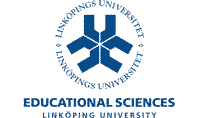|
|
| |
| SYLLABUS |
| The Global and Exploring Teacher, Full-time,
30 ECTS Credits |
| |
COURSE CATEGORY Single Subject Course
MAIN FIELD OF STUDY Utbildningsvetenskap-UV2
SUBJECT AREA
|
|
COURSE CODE |
|
921G13 |
|
| AIM OF THE COURSE |
On completion of the course the student should be able to:
- identify and analyze UNESCO’s four pillars of education; learning to know, learning to do, learning to live together and learning to be.
- exemplify and discuss the cultural influences on our cognition and identity
- compare and contrast different educational systems in at least two countries
- analyse, reflect upon and display an understanding of different perspectives on sustainable development and the role of education in a future sustainable local and global society
- use technology as a means and end in her/his learning process.
|
| CONTENTS |
| The UNESCO-inspired, distance course is designed for teacher training students or teachers working in schools wanting to probe into the complex and interdependent matters of education & knowledge, human capacity, culture and development. The course presents different perspectives of the concepts knowledge and learning, living together and personal development, where UNESCO’s four pillars of education, is taken as a starting-point. The course will also include aspects of The Millennium Development Goals and the concept Sustainable Development. Different educational systems are studied and links to educational planning and implementation will be integrated throughout the modules where appropriate. The importance of education in a world of inequalities, clashing cultures, rapid transformation and globalization is highlighted and analysed. Organizing learning processes and teaching will be carried out through teaching practice in the student’s own home country. Documentation from the teaching practice is subject for discussion and evaluation. The course is built on 6 modules; Introduction course, Learning to know, Learning to do, Learning to live together, Learning to be and a final supervised practical Fieldwork. |
| TEACHING |
| The course is a distance learning course where students interact with teaching staff and fellow students with the aid of the platform It’s Learning. The language of instruction is English. The methods of instruction are web-based lectures, teacher and student-led seminars and discussions in the virtual learning environment as well as individual comments on written assignments. Guiding students in searching and finding relevant literature is also part of the instruction methods of this course. Students are expected to prepare for lectures and seminars by reading recommended texts and taking part in all group work, discussions and leading seminars. Learning in smaller groups will be used when possible. Students are encouraged to use real-life cases from their local environment in the discussions with their peer students in order to challenge each others perspectives. |
| EXAMINATION |
Examination consists of different parts; e-portfolios, written assignments and active, constructive participation in seminars.
SME1 4 ECTS E-portfolio
SRE1 8 ECTS Written Assignment
SME2 8ECTS Seminar and Written Assignment
SME310 ECTS Project – Written Assignment and Seminar
Students failing an exam covering either the entire course or part of the course two times are entitled to have a new examiner appointed for the reexamination.
Students who have passed an examination may not retake it in order to improve their grades. |
| ADMISSION REQUIREMENTS |
At least one year of undergraduate studies. Documented knowledge of English equivalent to "Engelska B"; i.e. English as native language or an internationally recognized test, e.g. TOEFL (minimum scores: Paperbased 575 + TWE-score 4.5, internetbased 90 TWE-score 20), IELTS, academic (minimum score: Overall band 6.5 and no band under 5.5), or equivalent.Exemption from Swedish B. |
| GRADING |
| The course is graded according to the ECTS grading scale A-F |
| CERTIFICATE |
| Course certificate is issued by the Faculty Board on request. The Department provides a special form which should be submitted to the Student Affairs Division. |
| COURSE LITERATURE |
|
The course literature is decided upon by the department
in question. |
| OTHER INFORMATION |
Planning and implementation of a course must take its starting point in the wording of the syllabus. The course evaluation included in each course must therefore take up the question how well the course agrees with the syllabus.
The course is carried out in such a way that both men´s and women´s experience and knowledge is made visible and developed. |
| |
The Global and Exploring Teacher, Full-time
The Global and Exploring Teacher |
| |
Department responsible
for
the course or
equivalent:
ISV - Department of Social and Welfare Studies |
| |
|
|
|
|
|
| Registrar No: 242/07-01 |
|
Course Code: 921G13 |
|
|
|
| |
|
Exam codes: see Local Computer System |
|
|
|
| Subject/Subject Area : Utbildningsvetenskap-UV2 |
|
|
|
|
|
| |
|
|
|
|
|
| Level |
|
Education level |
|
|
Subject Area Code |
|
Field of Education |
|
| G2X |
|
Basic level |
|
|
UV2 |
|
SA |
|
|
The syllabus was approved by the Board of Educational Sciences 2010-06-10
|
|
|
| |
